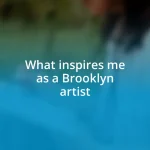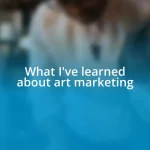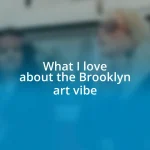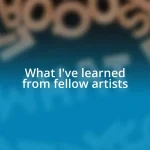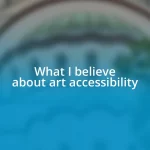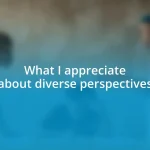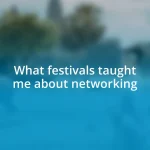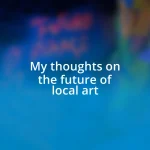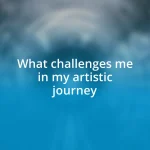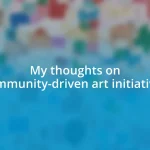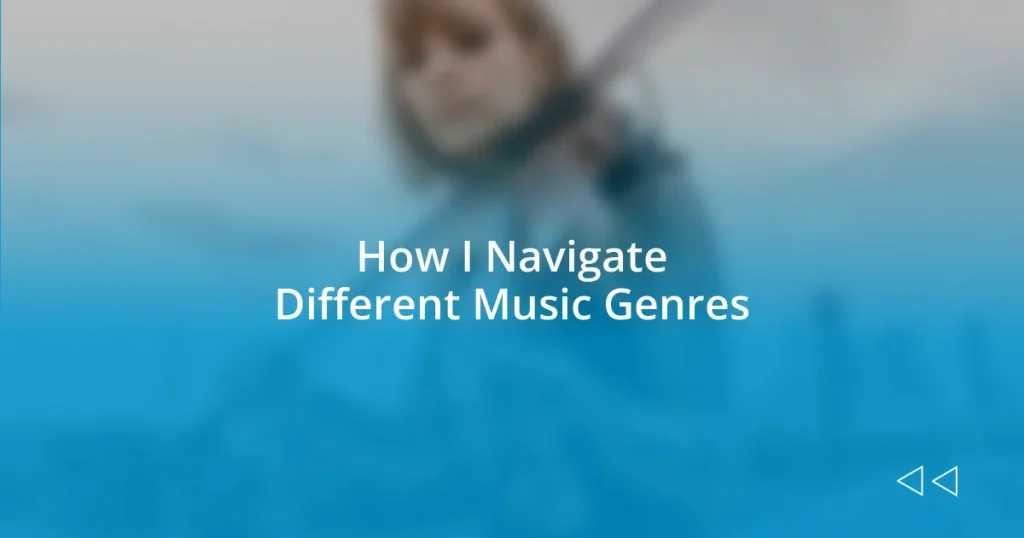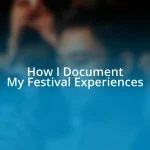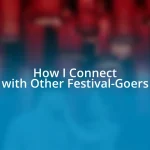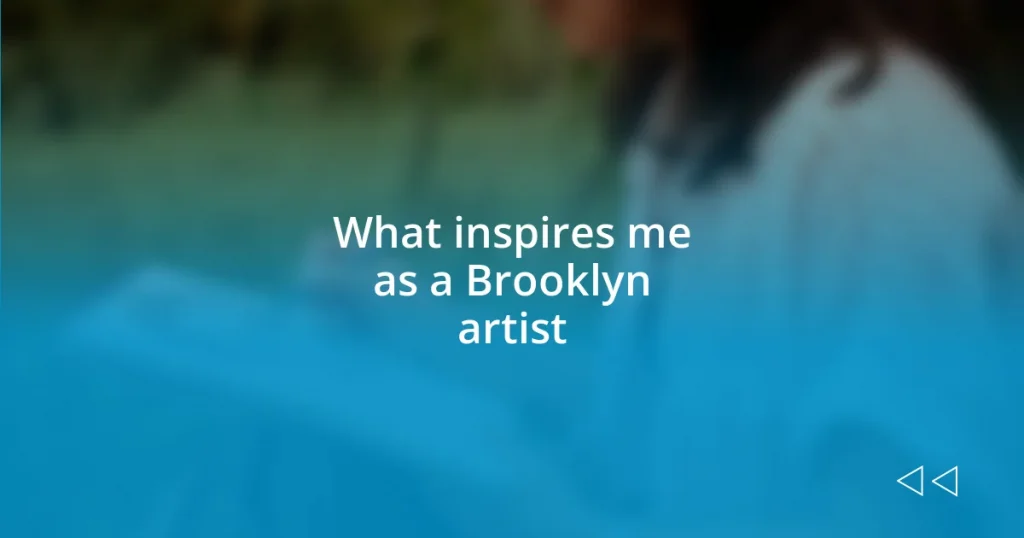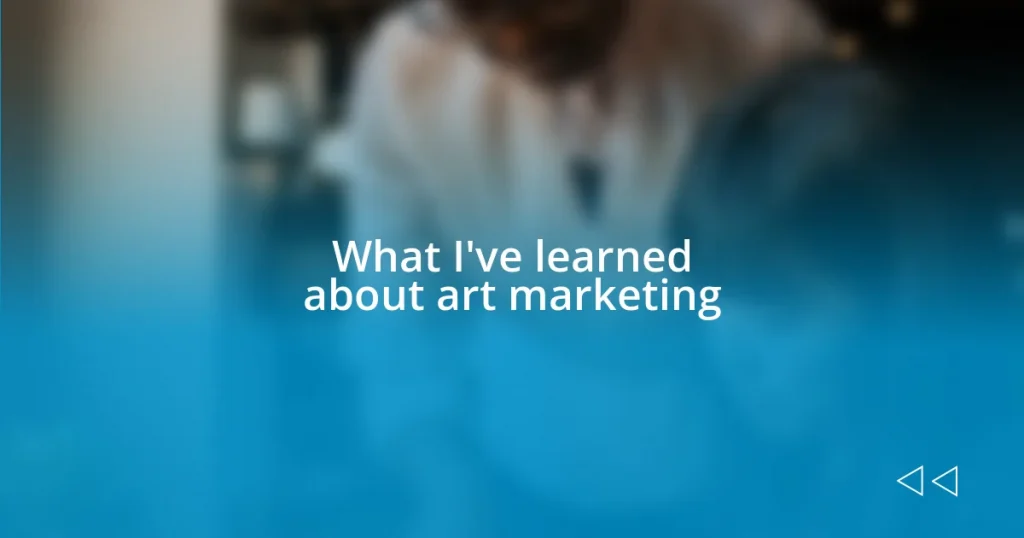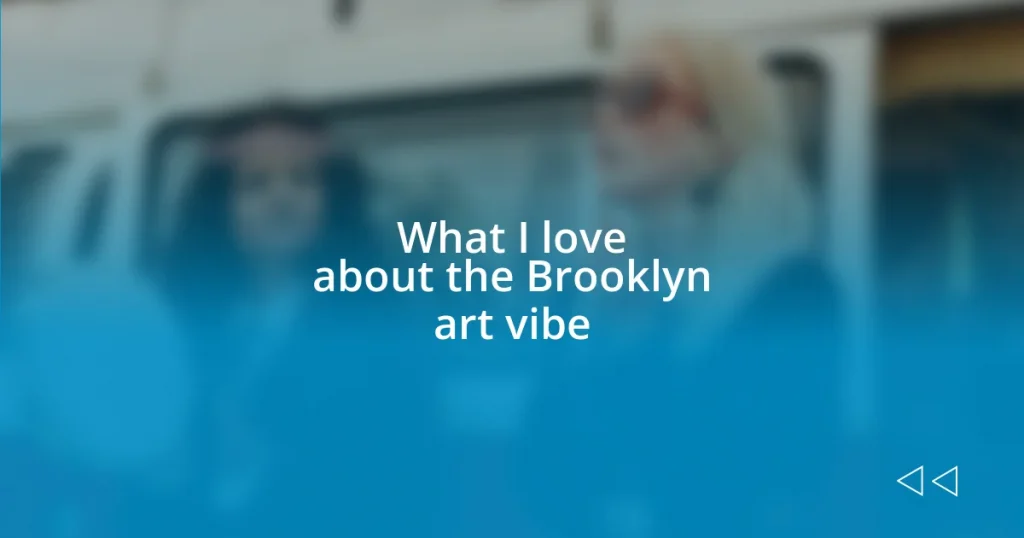Key takeaways:
- Understanding music genres requires exploring their historical and cultural contexts, enriching the appreciation of different styles.
- Creating a diverse playlist and engaging in live events can elevate musical experiences, offering fresh perspectives and connections.
- Developing a unique sound involves experimenting with various influences, fostering creativity and deeper connections with audiences.
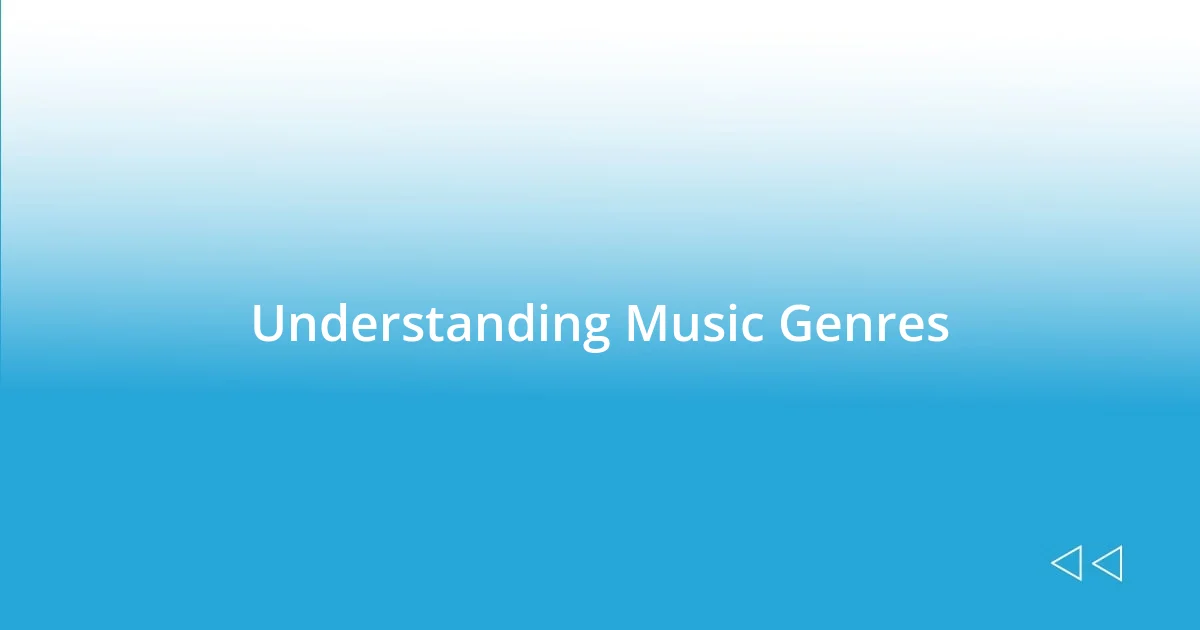
Understanding Music Genres
To truly grasp music genres, it’s essential to understand their historical and cultural contexts. For instance, I often find myself exploring how the roots of blues shaped the evolution of rock music. It makes me wonder, how much does knowing this history change the way we appreciate a tune?
Genres can feel like distinct languages within the world of music. I remember the first time I heard jazz; it struck me as this intricate conversation between musicians, where improvisation reigned supreme. It left me questioning why certain styles resonate with different emotions in us—is it merely the sound, or does the vibe of the genre tap into our personal experiences?
As I dive into various genres, I marvel at the way they reflect societal changes. Listening to punk rock during my teenage years made me feel part of a rebellious movement. I ask myself, isn’t it fascinating how music serves as both a mirror and a catalyst for the times we live in? Understanding these connections enriches my listening experience immensely.
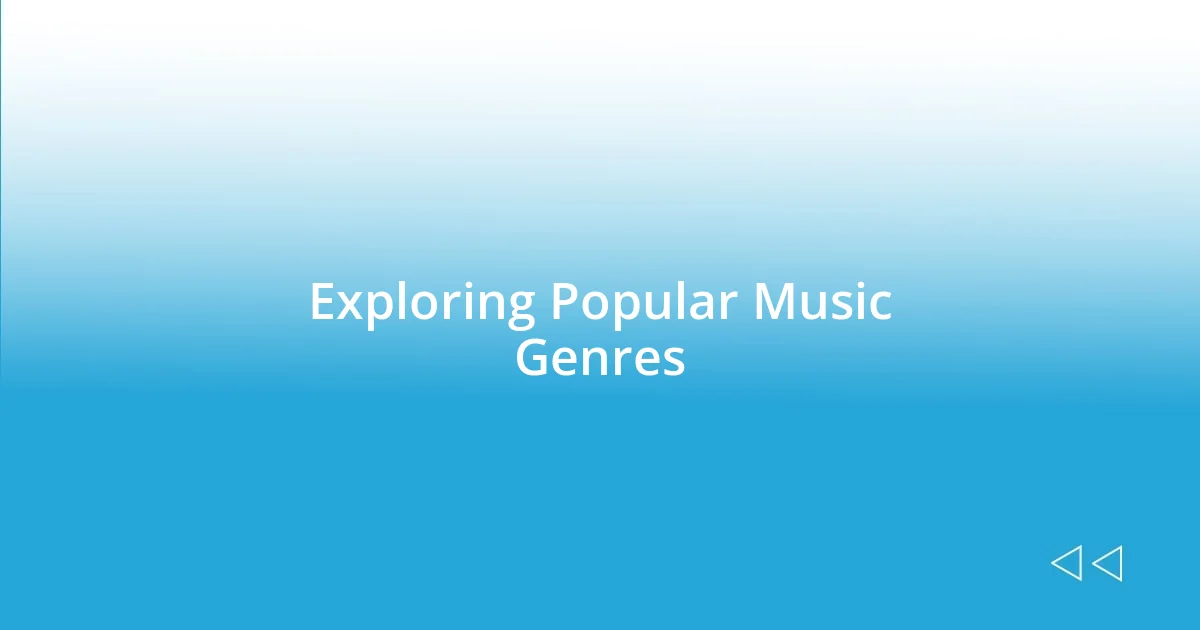
Exploring Popular Music Genres
Exploring popular music genres is like embarking on a journey through different cultures and eras. For instance, when I first stumbled upon reggae, I was captivated by its laid-back rhythm and the powerful messages behind the lyrics. It opened my eyes to the socio-political issues musicians express through their art, making me realize how music can be a voice for the voiceless. Isn’t it intriguing how such genres can transport us to different parts of the world, right from our living rooms?
Pop music stands in stark contrast to genres like indie or classical, often prioritizing catchy hooks and mainstream appeal. I recall sitting in my car, belting out the latest chart-toppers, and feeling an instant connection to the energy they bring. Yet, diving into indie music, I discover a sense of authenticity that resonates deeply with my personal tastes. This contrast, too, raises a question: why do we gravitate towards one genre over another?
As I explore hip-hop, the raw storytelling within each track captures my attention vividly. One evening, while listening to an album, I found myself reflecting on the artist’s journey, their struggles, and triumphs. It reinforced for me the idea that rap is not just about beats and rhymes; it’s a narrative steeped in history. This realization pushes me to appreciate the layers behind the sounds I love, prompting me to explore deeper meanings in every genre.
| Genre | Characteristics |
|---|---|
| Blues | Emotional expression, roots in African American history, influence on rock. |
| Jazz | Improvisation, complex rhythms, collaborative nature. |
| Reggae | Laid-back groove, social and political messages, rooted in Caribbean culture. |
| Pop | Catchy melodies, widespread appeal, frequently produced for mainstream success. |
| Indie | Authenticity, often DIY, diverse musical styles. |
| Hip-Hop | Storytelling, rhythmic vocal style, cultural influence. |
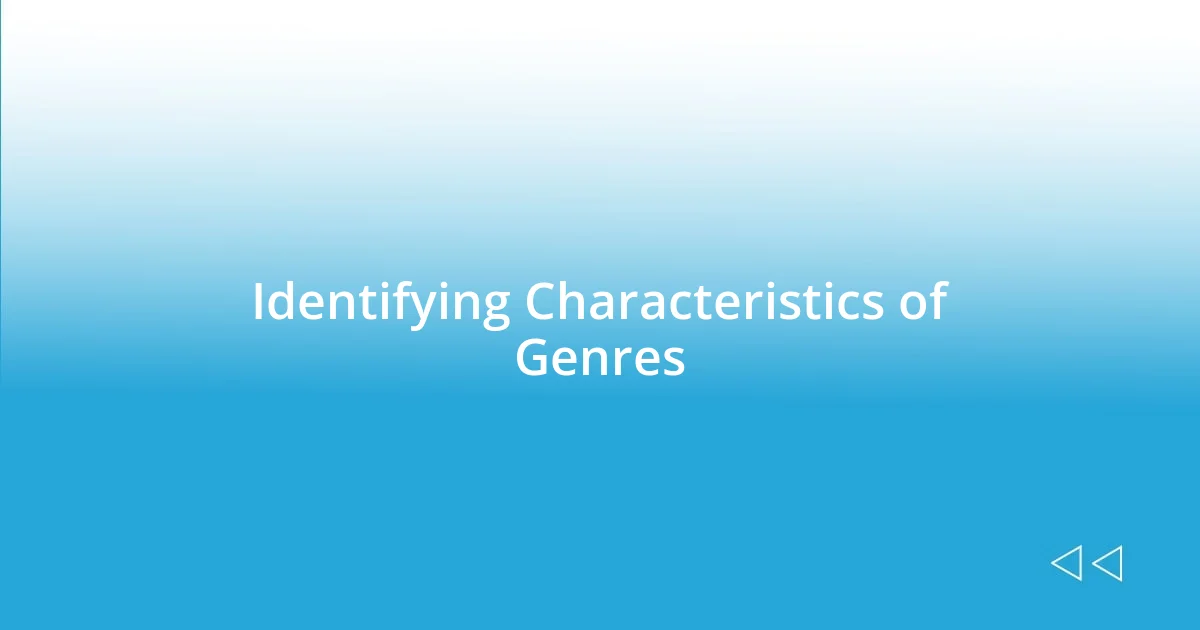
Identifying Characteristics of Genres
Identifying the characteristics of different music genres often feels like uncovering hidden gems within the vast landscape of sound. Take, for instance, my first experience with country music; the storytelling within each lyric pulled me in, almost like attending a captivating fireside chat. It wasn’t just the twang of the guitar that resonated, but the relatable narratives of love, loss, and life’s simple moments that felt like a warm embrace.
- Country: Narrative-driven lyrics, emotional themes, and roots in folk traditions.
- Rock: Heavy guitar riffs, strong beats, and themes of rebellion and identity.
- Classical: Complex orchestration, structured compositions, and emotional depth through instrumental performance.
- Electronic: Synthesized sounds, rhythmic patterns, and a focus on creating atmosphere and mood.
- Folk: Acoustic instruments, emphasis on traditions, and intimate storytelling.
When I first dabbled in electronic music, the pulsating beats and ethereal vibes created a sense of euphoria that was hard to shake off. I remember a night out at a local club where the DJ seamlessly mixed tracks, making the crowd move as one. The sensation of losing myself in the music felt liberating, highlighting how genres can shape not just what we hear, but also how we feel and connect with others.
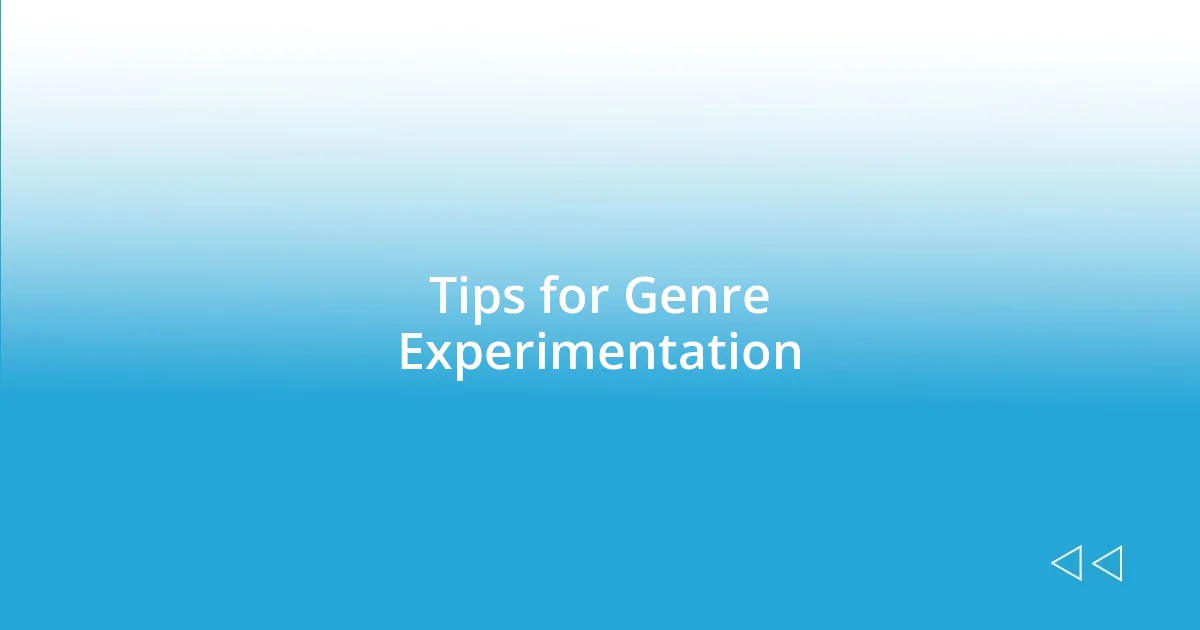
Tips for Genre Experimentation
One effective tip for genre experimentation is to create a diverse playlist that blends different styles. I remember curating a mix of hip-hop, bluegrass, and electronic tracks for a road trip. To my surprise, the contrasting sounds meshed beautifully, sparking lively conversations among friends about how different genres can complement each other. Have you ever tried this approach? It might just expand your musical horizons in unexpected ways!
Another strategy I often use is to attend live events featuring various genres. I attended a local festival where I saw everything from folk to punk rock. There’s something about the energy of live performances that immerses you in the essence of the genre. The rawness of a punk band followed by the heartfelt melodies of a folk artist made the experience unforgettable. I found myself appreciating each style’s distinct flavor and how they tell stories in entirely different ways.
Don’t hesitate to engage with the artists and communities associated with the genres you’re exploring. I once reached out to a jazz musician on social media, sharing how their music impacted my creativity. To my surprise, they responded with insightful tips on immersing oneself in jazz culture. It taught me that connecting with the artists adds a personal dimension to the music, deepening my understanding and appreciation of their craft. Wouldn’t it be wonderful to connect with creators directly? It’s an enriching experience that can enhance your musical journey!
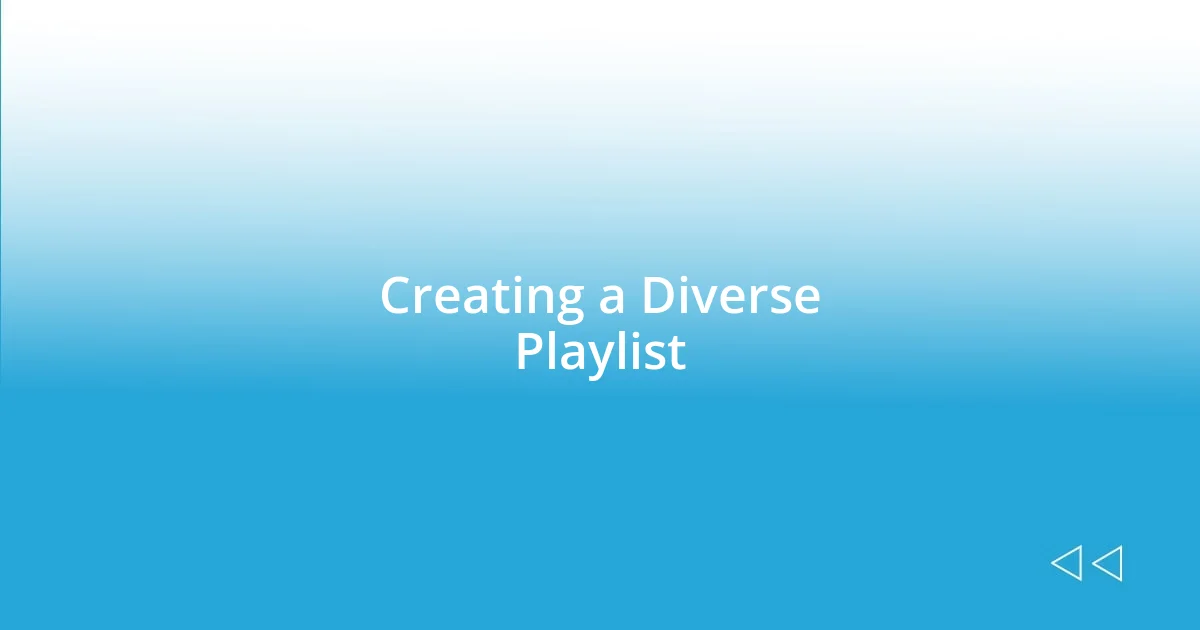
Creating a Diverse Playlist
Creating a diverse playlist can feel like a sonic adventure. I recall once sitting down to blend classical symphonies with upbeat K-pop tracks, fascinated by how the intricate layers of an orchestra contrasted with the catchy hooks of modern pop. Can you imagine the jarring yet thrilling effect that unexpected transitions can have? The journey through tempos and emotions not only surprised my ears but also sparked joy and conversation with friends who joined me in this musical exploration.
I find that including different genres challenges my musical palate and offers fresh perspectives. For instance, after adding a few smooth jazz tracks to my usual rock-heavy lineup, I was struck by how the laid-back rhythms created a relaxing backdrop for my creative thinking. Have you ever found that one genre unexpectedly enhances another? It’s as if the music plays out a dialogue, each genre speaking to and enhancing the others.
Don’t shy away from the unfamiliar when crafting your playlist. I once attended a showcase featuring indie artists—many of whom I had never heard of before. That night, I discovered an experimental band that fused ambient sounds with folk elements, totally changing my expectations of what I thought indie music could be. This experience taught me that exploration often leads to delightful surprises. What gems might await you in uncharted genres?
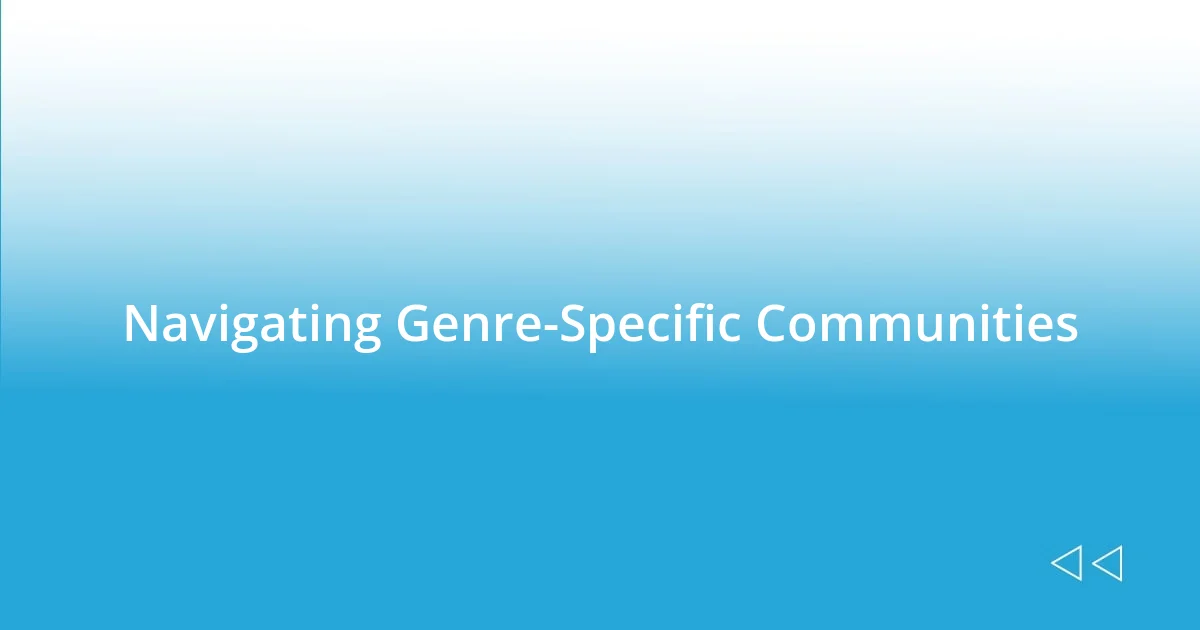
Navigating Genre-Specific Communities
When I first delved into the world of electronic music, I felt a bit like an outsider. Attending local raves and seeking out online forums, I was initially intimidated by how tight-knit those communities seemed. However, after sharing my personal takes on different tracks in a forum, I quickly realized that passion for music can bridge gaps. People responded with enthusiasm, sharing their own experiences and recommendations, and I felt welcomed into a vibrant space.
Engaging with genre-specific communities often means stepping outside of my comfort zone. I remember finding an online group dedicated to heavy metal, a genre I wasn’t overly familiar with. When I shared my thoughts on a classic Metallica album, I was met with a flood of feedback! The discussions that followed not only enriched my understanding but also sparked my curiosity about the genre’s history and evolution. Have you ever noticed how deeply music connects people? This realization made me feel more grounded in my music journey.
I’ve also discovered that attending genre-tailored meetups can create bonds that last beyond the music. At a blues jam night, I timidly picked up a harmonica, eager to join in with seasoned musicians. As I stumbled through a few notes, fellow music lovers encouraged me, sharing their stories of struggle and triumph. That sense of camaraderie transformed my perception of the genre, making it feel less like a distant experience and more like a shared journey. Isn’t it fascinating how music can foster such human connection, even among strangers?
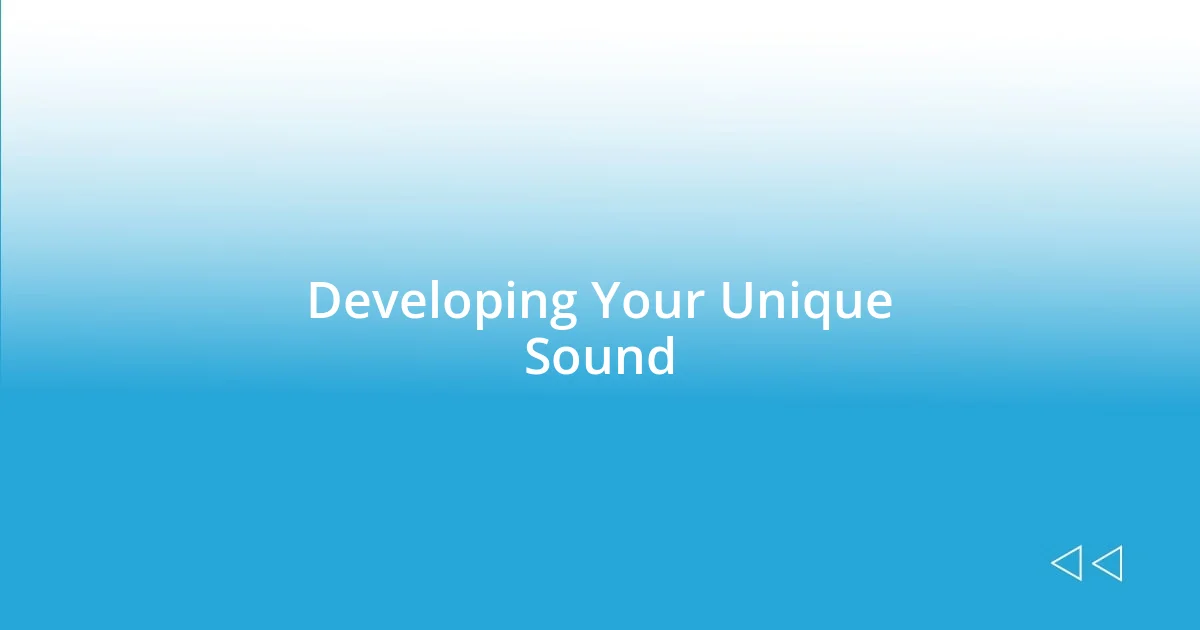
Developing Your Unique Sound
Developing your unique sound is a thrilling journey, one that I often approach as an artist reflecting my life’s experiences. For example, I spent an entire summer experimenting with blending blues guitar riffs with folk storytelling, pouring my heart into each lyric. On particularly inspired evenings, I would strum my guitar while recalling meaningful moments from my past. Have you ever felt a genre completely resonate with your personal narrative? That fusion not only felt authentic to me, but it also introduced listeners to a sound they hadn’t heard before.
Embracing my eclectic influences has also become a fundamental part of my musical identity. I remember the first time I mixed hip-hop beats with classical piano; it was both nerve-wracking and exhilarating. I felt like I was standing on the edge of creativity, daring myself to leap into the unexpected. The outcome left me surprised and proud, showing me that sometimes the most profound sounds come from the least expected combinations. How often do we limit ourselves to established norms? Reflecting on this helped me appreciate the beauty of experimentation in music.
Every now and then, I think about the first time I performed my blended sound live. My heart raced as I took the stage, the varied influences swirling within me. As I played, I noticed smiles breaking out in the audience, and I realized my unique sound had connected with others. That moment taught me a powerful lesson: by embracing my musical quirks, I not only developed my style but also forged connections with listeners who found something familiar within my creations. Isn’t it incredible how our individuality can resonate so deeply with others?

